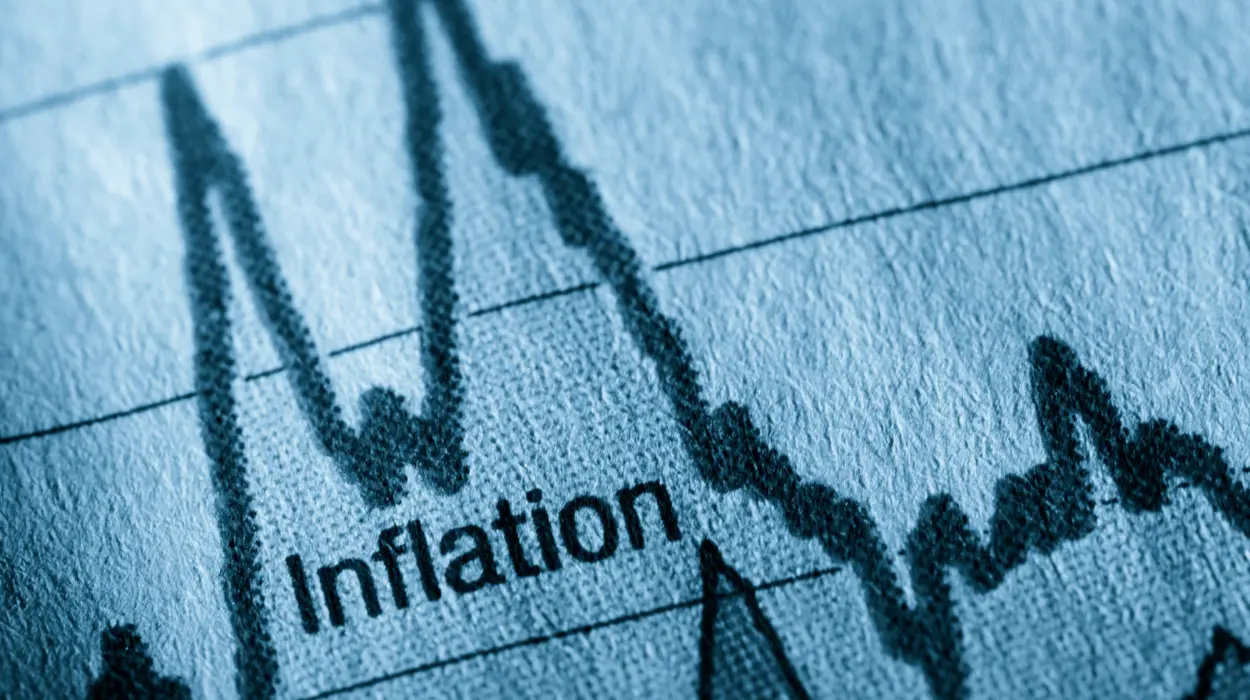UK (Parliament Politics Magazine) – UK’s inflation rate dipped to 2.5% in December, bringing some comfort to households, while it still exceeds the Bank of England’s 2% goal.
The new data from the Office for National Statistics (ONS) shows that Britain’s inflation rate has somewhat decreased. The consumer price index (CPI) for the fiscal year ending December 2024 fell to 2.5 percent, down slightly from 2.6 percent in November.
As reported by the Independent, the number remains higher than the Bank of England‘s (BoE) 2% target, highlighting that the central bank is unlikely to lower interest rates soon. This scenario results in increased costs for borrowers yet offers better returns for those with savings.
What are the key reasons behind the inflation drop, according to ONS?
Grant Fitzner, the ONS’s chief economist, highlighted that a fall in hotel room charges and smaller rises in tobacco duties were the main contributors to the easing inflation rate.
Food prices saw a 2% increase, matching November’s figures, while food inflation surged to 19.2% in March 2023.
Reductions in energy and transportation costs, such as cheaper fuel and flights, have also lessened inflation. Shifts in consumer spending throughout the festive season affected pricing and demand, slowing the rate of inflation.
What did Darren Jones, chief secretary to the Treasury, say about inflation’s drop?
Darren Jones praised the reduction in inflation, saying it is evidence that the “Prime Minister’s plan for change” is yielding results. However, he acknowledged that the government still has more to do.
Mr Jones added,
“We know the cost of living is still a problem for lots of people. The target is 2 percent, but it’s come down to 2.5 percent. This is obviously much more stable than it was a few years ago when it was peaking at 11 percent and driving everybody to worry about their mortgage, rent and energy bills.”
He added the decrease in inflation is positive for families across the nation.
How did the Tories respond to the fall in inflation?
The Conservative party welcomed the drop in inflation. Shadow Chancellor Mel Stride targeted Labour’s budget decisions since taking office, claiming the government had effectively “killed economic growth stone dead.”
Mr Stride added, “Whilst this month’s reduction in inflation is welcome news, there are still challenges ahead, not least the National Insurance hikes – which some of will be passed on in higher prices – have yet to bite.”
Referring to the current economic situation, Mel Stride said the key to our economy is reviving growth, but this government has completely stifled it. He urged Chancellor Rachel to explain how she plans to address this.
What did the independent economist Julian Jessop say about the inflation fall?
An independent economist, Julian Jessop, welcomed the news of a reduction in the inflation rate and posted on X, “Relatively good news on UK inflation. CPI measure ticked down to 2.5% in December, from 2.6%, with core (excl. food & energy) dropping from 3.5% to 3.2%. Inflation remains close to the Bank of England’s forecasts, allowing rates to be cut further.”
Relatively good news on UK #inflation… 📢
— Julian Jessop (@julianHjessop) January 15, 2025
CPI measure ticked down to 2.5% in December, from 2.6%, with core (excl. food & energy) dropping from 3.5% to 3.2%.
Inflation remains close to the Bank of England's forecasts, allowing rates to be cut further 🤞
(More to follow)
When a question was asked about how many rate cuts he expects coming this year, he responded, “At least four, possibly more, with a good chance one or more is a half point rather than a quarter.”
How did the Chancellor and economic adviser from MHA firm respond to the decline in the inflation rate?
As reported by The Standard, Chancellor Rachel Reeves said, “There is still work to be done to help families across the country with the cost of living. That’s why the Government has taken action to protect working people’s payslips from higher taxes, frozen fuel duty and boosted the national minimum wage.”
Joe Nellis, economic adviser at MHA, noted that the 2.5% drop in year-on-year inflation for December is a welcome relief. Still, inflation remains a major issue weighing on the UK economy.
Why is Chancellor Reeves under pressure, and how does the inflation drop benefit her?
Chancellor Rachel Reeves is facing increasing pressure over her financial policies for the nation. Rising government bond yields signal growing concerns about market confidence in the economy. Her proposal to increase employer national insurance has been met with backlash from employers, especially from the retail sector.
Even the opposition parties are demanding her resignation due to the stalled economy, but Prime Minister Keir Starmer said the Chancellor has my full support and confidence.
Experts described the news of the reduction in inflation as a good move for the chancellor and said her plans started working.
How is the UK inflation rate measured?
- CPI: Tracks price shifts in everyday essentials like food, transport, and entertainment.
- RPI: Adds housing costs, including mortgages and council tax, for a broader inflation picture.
- Yearly Change: Inflation is measured by the annual percentage change in CPI or RPI.
- Inflation Insight: Both indices show how rising prices impact your wallet and the economy.

